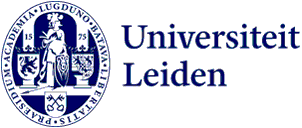Gateways for Humanity: The Duty to Reason in the Automated State
On 6 June 2023, Melanie Fink gave a ‘conférence’ at the University of Liège, Belgium in the context of its EU Studies Seminar Cycle, organised by Ljupcho Grozdanovski.
Melanie Fink presented a project she is currently developing on the role of the duty to reason in EU law in ensuring that in increasing automation, the state does not sacrifice its humanity.
The duty to reason requires public authorities to communicate the reasons for their decision to those affected by it. Like other mechanisms to control public power, reasoning obligations are shaped around a human being as a decision-maker at the centre of the administration. They are designed to protect against what we know to be the flaws of human decision-makers, such as arbitrariness or bias, by forcing the decision-maker to find objective justifications for their decisions. But by creating a ‘gateway’ for meaningful communication between the state and its citizens, they may also be vehicle for the virtues of human decision-makers, such as compassion or empathy. This facilitates the exercise of other rights, such as the right to be heard, but also more generally allows individuals to ‘feel seen’ and experience the state as legitimate.
It is widely recognised that automation poses a challenge to reasoning obligations. This is in particular the case when artificial intelligence (AI) systems are used that are so complex that a human cannot understand how and why a system reached its conclusion. Framed as a problem of a lack of ‘explainability’ of AI systems, the solution is to make them explainable. However, if we see reasoning obligations as important ‘gateways’ for meaningful communication, the tension between automation and reasoning obligations runs deeper. Simply put, if the problem is the lack of experiencing empathy, ‘robot explanations’ are not the solution.
The project intends to explore reasoning obligations as a tool to yield the promises of an automated state, without sacrificing its humanity. The question at the heart of it is: How can we exploit the potential of the duty to reason to function as a gateway for humanity in the automated state?
